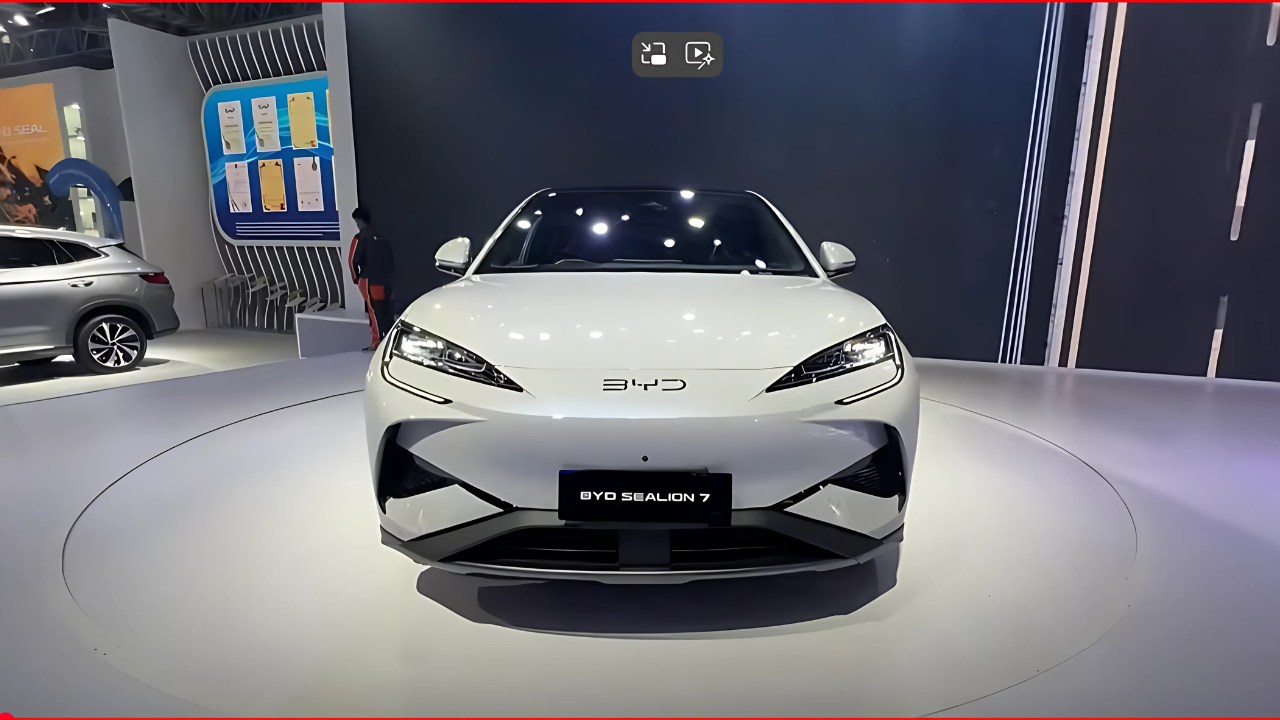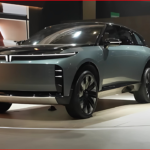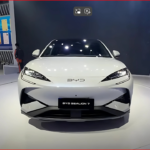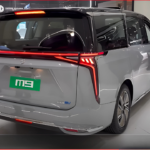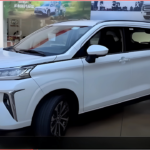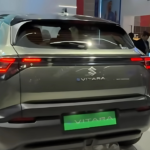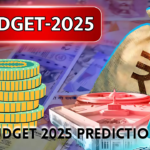BYD Co., a leader in electric vehicles, has launched the Sealion 7 in India. This marks an important step in the company’s goal of expanding its presence in the Indian electric vehicle market. The Sealion 7 is designed to address the growing need for eco-friendly transport options. This new model aims to attract Indian buyers looking for sustainable and efficient ways to travel.
The launch of the Sealion 7 showcases BYD’s commitment to meeting the demands of a market that is increasingly focused on reducing carbon footprints. As interest in electric vehicles rises in India, BYD aims to provide solutions that are both practical and environmentally friendly. The Sealion 7 features advanced technology and thoughtful design, making it suitable for urban and rural use alike.
BYD’s move to introduce the Sealion 7 is part of a larger strategy to drive growth in the electric vehicle sector. The Indian market presents unique challenges and opportunities. By offering a vehicle that aligns with local needs and preferences, BYD is positioning itself as a strong competitor.
The arrival of the Sealion 7 also highlights the importance of sustainable transportation. With more consumers considering electric vehicles, BYD is responding to a significant shift in how people think about mobility. This launch not only reinforces BYD’s role as a key player in the EV market but also supports India’s broader goals of promoting cleaner transportation options.
In summary, the Sealion 7’s debut in India represents a major commitment from BYD to help transform the auto industry. This vehicle is aimed at customers who are looking for more than just a means of getting from one place to another. It provides an alternative that is better for the environment and aligns with a modern lifestyle focused on sustainability.
The Launch Event at Bharat Mobility Global Expo 2025
The Bharat Mobility Global Expo 2025 took place in New Delhi, and it was a significant event for the automotive industry. One of the most exciting moments of the expo was the launch of the Sealion 7. This electric utility vehicle represents a new direction for transportation. BYD, a well-known player in the electric vehicle market, made a big impact with its presence at the event.
During the launch, BYD announced that interested buyers can now place their bookings for the Sealion 7. This announcement was met with enthusiasm from attendees. Many potential customers and industry experts alike are eager to learn more. However, BYD has not revealed the price of the Sealion 7 yet. This lack of pricing information adds an element of mystery and anticipation. It leaves many asking questions and wanting to know how much they will need to spend to own this new vehicle.
Overall, the launch of the Sealion 7 at the Bharat Mobility Global Expo 2025 marks an important step in the electric vehicle market. It highlights the commitment of companies like BYD to innovate and provide new options for consumers. People are excited to see how this vehicle will perform in the growing market of electric utility vehicles.
BYD’s Strategy for the Indian Market
BYD’s launch of the Sealion 7 aligns with its larger plan to enter the Indian market, which has great potential for growth in electric vehicles (EVs). The sector is gaining traction due to several factors. The Indian government is providing incentives to promote EV sales. People are becoming more aware of environmental issues, wanting cleaner options to reduce pollution. Additionally, rising fuel prices are pushing consumers to consider electric alternatives for transportation.
A spokesperson for BYD emphasized the importance of this market during the Sealion 7 launch, saying, “India represents a crucial market for us, and the Sealion 7 is a testament to our commitment to delivering innovative and sustainable mobility solutions.” This statement highlights BYD’s focus on providing solutions that meet the needs of Indian consumers. The company sees the Sealion 7 not just as a vehicle, but as a step toward a greener future.
As the demand for electric vehicles continues to rise, BYD aims to tap into this growing market. The Sealion 7 is designed to meet the expectations of customers seeking dependable and eco-friendly transportation. Through this introduction, BYD hopes to establish itself as a key player in India’s transition to electric mobility, catering to an audience that values both sustainability and reliability in their vehicles. The launch of Sealion 7 marks a significant move by BYD, showcasing its dedication to innovation in sustainable transport solutions.
What Makes the Sealion 7 Stand Out?
BYD has not released detailed specifications and features for the Sealion 7, but its design and market positioning indicate it is aimed at meeting the needs of both urban and semi-urban consumers. Here is an overview of what to expect based on available information:
The Sealion 7 is designed with an eco-friendly focus, reflecting the growing global emphasis on sustainable transportation solutions. This aligns with current trends where consumers are increasingly conscious about their environmental impact and seek greener alternatives in their vehicles.
In terms of utility and comfort, BYD has built a strong reputation for delivering quality and innovation in its vehicles. The Sealion 7 is anticipated to offer roomy interiors, ensuring that passengers have enough space to travel comfortably. Advanced features are expected to enhance the driving experience, making everyday uses and long trips more enjoyable.
The Sealion 7 aims to reach a wide range of consumers, from families in search of a reliable vehicle to businesses that need practical and efficient utility options. Its versatile design suggests it will appeal to various demographic groups, meeting different needs with ease.
As an electric utility vehicle, the Sealion 7 is likely to incorporate a high-capacity battery. This feature is essential for providing an extended driving range, allowing users to take longer trips without the hassle of frequent recharging. The focus on efficiency will be a key selling point.
BYD’s commitment to innovation suggests that the Sealion 7 will include smart technology features. These may consist of advanced infotainment systems that provide entertainment and connectivity options for drivers and passengers. Additionally, driver-assistance technologies could enhance safety and ease of operation, making the vehicle user-friendly.
Overall, the Sealion 7 stands to make a significant impact in the electric vehicle market by combining eco-friendliness, comfort, versatility, and smart technology. It is poised to meet the demands of today’s consumers while promoting a sustainable future.
The Growing EV Market in India
India’s electric vehicle (EV) market has experienced rapid growth in recent years. This surge can be attributed to a combination of supportive government policies, enhanced infrastructure, and a notable change in consumer attitudes towards eco-friendly living. The Indian government is actively promoting the adoption of EVs through various initiatives. For example, subsidies are available under the Faster Adoption and Manufacturing of Hybrid and Electric Vehicles (FAME) scheme. Such programs reduce the cost of EVs for consumers and encourage more people to consider electric options. Additionally, the government is making significant investments in charging infrastructure, which addresses one of the main concerns of potential EV buyers: the availability of charging stations.
This nurturing environment has allowed companies like BYD to flourish in the Indian market. BYD, known for its innovation and commitment to electric mobility, recently launched the Sealion 7. This model is positioned to take advantage of the positive trends in the EV sector. By introducing the Sealion 7, BYD aims to meet the growing demand for electric vehicles in India, further driving the shift towards sustainable transport. The company has a solid history of producing reliable electric vehicles globally, which builds trust and anticipation around its newest release. With the combination of government support and growing consumer awareness, BYD is set to play a significant role in shaping the future of electric mobility in India.
Challenges and Opportunities
The electric vehicle (EV) market in India has great potential, but it also faces several challenges that need to be addressed. One of the main issues is the high upfront costs associated with purchasing EVs. Many consumers may find it hard to justify the initial investment, even if they recognize the long-term savings on fuel and maintenance. This cost barrier can limit the growth of EV adoption in the country.
Another significant challenge is the limited charging infrastructure. The lack of a widespread network of charging stations makes it difficult for potential buyers to confidently switch to an electric vehicle. Without more charging options, consumers may worry about running out of power while on the road. This concern can further discourage people from considering EVs as a viable option.
Consumer awareness is also a crucial hurdle. Many people still have limited knowledge about the benefits of electric vehicles. They may not fully understand how EVs work or the advantages they offer, such as lower emissions and reduced running costs. Building awareness and educating consumers about these benefits is essential for the industry to thrive.
Despite these challenges, companies like BYD can find ways to succeed in the Indian market. Establishing strategic partnerships can help build a stronger presence and address some of the barriers to entry. Collaborating with local businesses can enhance manufacturing capabilities and improve distribution channels.
Localized manufacturing is another critical strategy. By producing vehicles in India, companies can reduce costs and make EVs more accessible to the average consumer. This step can also boost the local economy and create jobs, which can further encourage acceptance of electric vehicles.
Robust after-sales support is vital for building trust with Indian consumers. Offering dependable service and maintenance options can alleviate concerns and increase customer satisfaction. When consumers feel supported after their purchase, they are more likely to recommend the brand to others.
BYD’s choice to withhold pricing details for the Sealion 7 could be a smart tactic. By not revealing the price right away, the company can observe how the market reacts. This strategy allows them to assess consumer interest and demand for the vehicle. They can gather insights on what potential buyers are willing to pay.
Adjusting the price based on initial feedback is a practical approach. It allows BYD to align its pricing strategy with current market trends and competitor pricing. This flexibility can help the company find the right balance between profitability and consumer appeal. Overall, while the EV market in India presents obstacles, companies that carefully strategize can successfully navigate these challenges and thrive.
